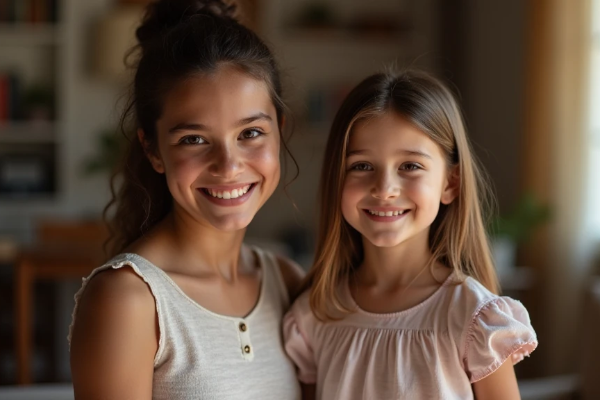Teaching Kids Basic Manners: Essential Lessons for Every Child
 As parents, teaching our children basic manners is one of the most important lessons we can impart. Manners help children navigate the world with kindness, respect, and empathy for others. With the fast pace of modern life, it's easy to overlook these fundamental social skills, but they play a key role in building strong character and positive relationships. In this post, we'll explore essential manners for kids, including everyday actions, polite phrases, and public etiquette that will set them up for success in life.
As parents, teaching our children basic manners is one of the most important lessons we can impart. Manners help children navigate the world with kindness, respect, and empathy for others. With the fast pace of modern life, it's easy to overlook these fundamental social skills, but they play a key role in building strong character and positive relationships. In this post, we'll explore essential manners for kids, including everyday actions, polite phrases, and public etiquette that will set them up for success in life.Actions: The Foundations of Good Manners
Good manners start with simple, everyday actions that foster respect and consideration for others. By encouraging children to practice these behaviours, we can help them develop positive habits that become second nature.
Don't Interrupt
One of the most important lessons is teaching kids to wait their turn when speaking. Interrupting others is not only rude, but it can also prevent meaningful communication. Encourage your child to listen carefully and speak once the other person has finished.
Wait Your Turn
Patience is a virtue that children must learn. Whether in a queue or waiting to play a game, teaching kids to wait their turn helps them understand fairness and self-control.
Choose Kind Words
The way we speak to others shapes our interactions. Remind your child to use kind, respectful language, even when they are frustrated. This will help them form positive relationships and navigate difficult situations calmly.
Share Things When Ready
Sharing is not always easy for kids, but it's a crucial social skill. Teach your child that sharing, especially when they feel comfortable, helps build friendships and promotes a sense of generosity.
Clean Up After Yourself
Taking responsibility for one's belongings and messes is an important life skill. Encourage your child to tidy up their toys and spaces, which shows respect for their environment and those they share it with.
Phrases: The Power of Polite Words
Words are powerful, and teaching children how to express themselves politely can make all the difference in how they are perceived by others.
Thank You
This simple phrase goes a long way in showing appreciation. Teaching your child to say "thank you" when someone does something kind or gives them something will foster gratitude and positive interactions.
Excuse Me
Whether they're squeezing past someone in a crowded space or needing attention, "excuse me" is a polite way to acknowledge others and maintain respectful boundaries.
Yes, Ma'am/Sir
In formal settings or when addressing elders, using respectful terms like "ma'am" or "sir" reinforces politeness. This small gesture can leave a lasting impression of respect.
Hello/Goodbye
Greeting others warmly and acknowledging their presence or departure is a basic social skill. Teaching your child to say "hello" and "goodbye" helps them build connections and show respect.
You're Welcome
In response to "thank you," teaching kids to say "you're welcome" instead of dismissive phrases like "no problem" adds a layer of kindness and helps maintain a polite exchange.
Public Manners: Behaving with Respect in Social Situations
Good manners extend beyond the home. Teaching children how to behave in public helps them navigate social situations with ease and confidence.
Hold the Door
A simple but powerful act of kindness, holding the door for someone shows thoughtfulness. Whether it's an adult or peer, this small gesture can brighten someone's day and build your child's empathy.
Ask Permission
Before taking or touching something that doesn't belong to them, it's important that children learn to ask first. This shows respect for other people's possessions and personal space.
Speak with Respect
Whether addressing adults, teachers, or peers, speaking with respect is key. This includes avoiding rude tones, speaking clearly, and treating everyone with kindness.
No Foul Language
Children need to understand that swearing or using inappropriate language is unacceptable in any setting. Encouraging clean language promotes positive communication and shows respect for others.
Conclusion
Teaching children basic manners is about much more than just politeness-it's about instilling values that will serve them throughout their lives. By guiding your child through these simple actions, polite phrases, and public manners, you're helping them become thoughtful, respectful, and kind individuals. Start with small steps, reinforce positive behaviours, and watch as your child grows into a person who positively contributes to the world around them.
 Blog
Blog